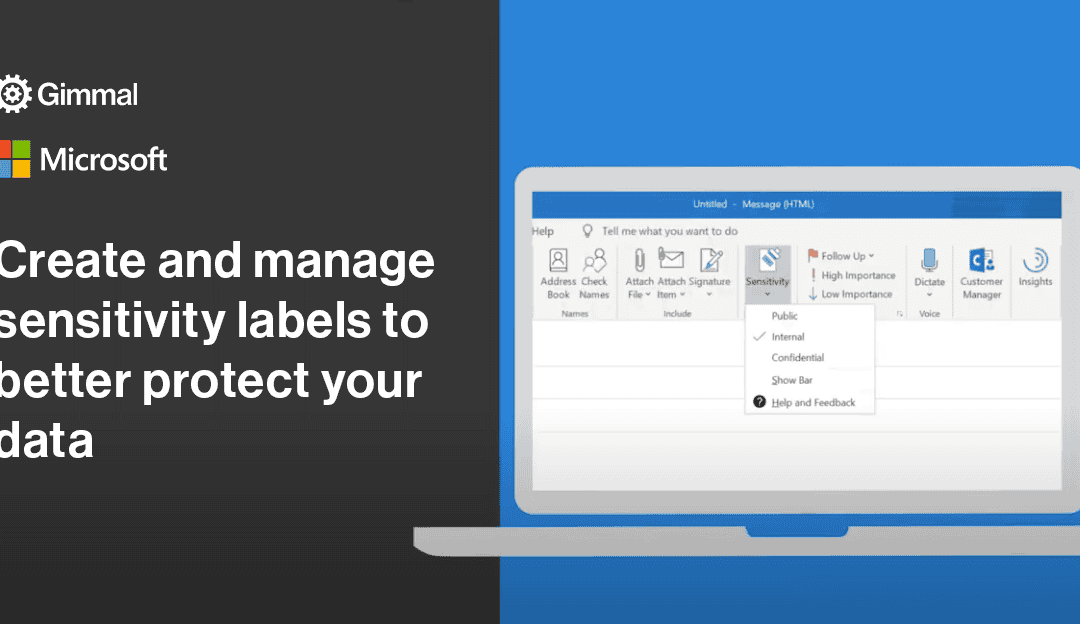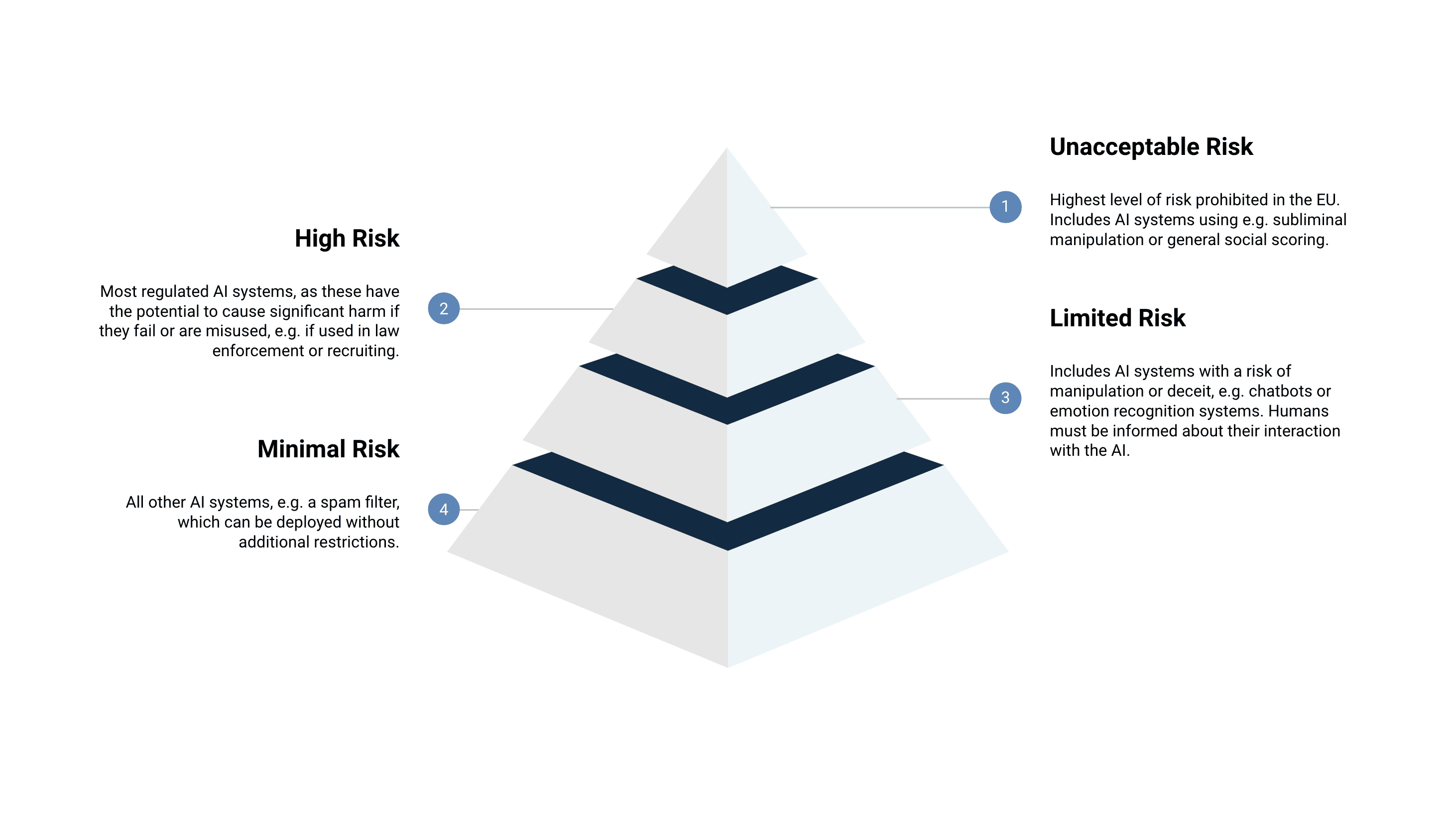The EU AI Act: What You Need to Know and How to Prepare

Written by Gimmal Product Marketing
The European Union Artificial Intelligence Act (EU AI Act) is one of the most significant regulations to impact businesses leveraging artificial intelligence (AI). As the first of its kind, this legislation sets new standards for how AI systems are developed, deployed, and managed, especially when it comes to data.
If your organization uses AI for critical functions like healthcare, finance, recruitment, or public services, the EU AI Act brings new rules that demand attention. From data governance to transparency, compliance isn’t optional—it’s a necessity.
In this blog, we’ll explore how the EU AI Act affects your business, why it matters for organizations outside the EU, and why effective data management is essential for compliance. Plus, we’ll introduce Gimmal’s 8 Weeks to Delete program, a simple, actionable way to get your data in shape and ready for the future.
What Is the EU AI Act?
The EU AI Act is the European Union’s effort to create a comprehensive framework for artificial intelligence. Its primary goal is to ensure that AI systems are safe, ethical, and aligned with fundamental human rights (Source: https://artificialintelligenceact.eu/).
To achieve this, the act divides AI systems into four categories based on risk:
- Unacceptable Risk: These AI systems (e.g., government social scoring) are prohibited entirely.
- High Risk: AI used in critical areas like medical devices, recruitment, or law enforcement faces strict regulations.
- Limited Risk: These systems require transparency, such as notifying users they are interacting with AI.
- Minimal or No Risk: Systems like chatbots or spam filters are largely exempt from regulatory demands
If your AI systems fall into the “High Risk” category, you’ll need to meet stringent requirements, particularly around data management, transparency, and compliance.
Why the EU AI Act Matters for Companies Outside the EU
Even if your business is based in North America or elsewhere outside the European Union, the EU AI Act could still impact you. Here’s why:
1. Global Reach of the EU AI Act
The EU AI Act applies to any organization that develops, deploys, or sells AI systems within the European Union, even if that organization is headquartered outside the EU. If your company operates internationally or provides AI-based products or services used in Europe, you’ll need to comply with the act’s requirements.
For example:
• A North American company selling AI-powered medical devices in Europe must meet the EU AI Act’s “High Risk” standards.
• A U.S.-based software provider offering AI-driven recruitment tools to EU-based clients must implement data governance and transparency measures to remain compliant.
2. The EU as a Regulatory Trendsetter
The EU has a history of influencing global regulations. Similar to how the EU’s General Data Protection Regulation (GDPR) set a new global standard for data privacy, the EU AI Act is likely to inspire similar legislation in other regions, including North America. Preparing for the EU AI Act now not only ensures compliance in Europe but also future-proofs your organization for emerging AI regulations worldwide.
3. Customer Expectations and Market Access
Consumers and businesses in the EU expect companies to meet high standards for transparency, safety, and ethical behavior, especially when it comes to AI. Non-compliance with the EU AI Act could damage your reputation, limit your ability to serve EU customers, and even lead to legal penalties.
By aligning with the EU AI Act, your organization demonstrates a commitment to responsible AI practices, which can strengthen trust with customers and partners globally.
How Does the EU AI Act Impact Your Business?
If your organization uses AI systems, especially in regulated industries, the EU AI Act will require you to revisit how you manage your data. The act emphasizes accountability and compliance, placing significant focus on how data is collected, stored, processed, and deleted.
Here’s how the act may affect your operations:
1. Stricter Data Governance Requirements
To comply with the EU AI Act, you’ll need to ensure your data is accurate, complete, and free from bias. This means reviewing and cleaning your data regularly, as well as adopting strong data governance policies to manage its lifecycle.
Without proper data governance, your organization risks using outdated, irrelevant, or biased data in your AI systems—leading to non-compliance and potential fines.
2. Transparency and Documentation Obligations
The act requires detailed documentation for AI systems, including information about:
- Data sources and quality.
- How systems are designed, tested, and monitored.
- Records of system performance and risk management.
If your organization struggles with inconsistent or incomplete records, meeting these documentation requirements can become a significant challenge.
3. Security and Risk Management
The EU AI Act places a strong emphasis on protecting data from breaches or misuse. You’ll need to secure sensitive information, ensure compliance with data retention schedules, and delete unnecessary data to minimize risks.
For many organizations, outdated or redundant data is a major vulnerability. Without a clear plan to manage and eliminate these risks, you could face compliance issues or even legal penalties.
Why Effective Records and Data Management Are Essential
At the core of the EU AI Act lies one critical element: data. It’s the foundation of every AI system, which makes managing it effectively more important than ever. Poor data management can lead to non-compliance, operational inefficiencies, and even fines of up to €30 million or 6% of your annual revenue (source: https://artificialintelligenceact.eu/article/99/).
Here’s why focusing on your data is the key to success under the EU AI Act:
- Compliance: Ensure your data meets the act’s requirements for accuracy, relevance, and proper governance.
- Efficiency: Reduce the time and resources spent managing outdated or irrelevant data.
- Risk Reduction: Minimize exposure to compliance risks by securely deleting unnecessary information.
For many organizations, tackling these challenges can feel overwhelming, especially when dealing with years of unstructured, redundant, or obsolete data. That’s where Gimmal’s 8 Weeks to Delete program comes in.
How Gimmal’s 8 Weeks to Delete Program Can Help
The 8 Weeks to Delete program is designed to simplify compliance, reduce risk, and streamline your records and data management efforts. In just eight weeks, Gimmal helps you take control of your data and prepare for regulations like the EU AI Act.
Here’s how the program works:
1. Identify and Classify Sensitive Data
We start by helping you locate and classify high-risk, redundant, or obsolete data across your organization. Whether it’s outdated client records, sensitive personal information, or duplicated files, this step ensures you know exactly what data you have and where it resides.
2. Streamline Records Management Policies
Next, we simplify your records management policies by creating actionable retention schedules and automating processes where possible. This ensures your data is retained only as long as necessary and deleted securely when it’s no longer needed.
3. Eliminate Redundant and Unnecessary Data
The program focuses on securely deleting information that no longer adds value to your organization but still poses a compliance risk. By removing this data, you reduce your exposure to potential fines or breaches.
4. Prepare for AI-Driven Innovation
With your data cleaned and organized, you’ll be ready to focus on leveraging AI for innovation and growth. The 8 Weeks to Delete program ensures your data is accurate, secure, and compliant, laying the foundation for future success.
Why Act Now?
The EU AI Act isn’t just about regulation—it’s an opportunity to improve how your organization handles data. By acting now, you can:
- Avoid last-minute compliance challenges.
- Lower your risk of penalties and legal exposure.
- Create a more efficient, streamlined approach to records and data management.
With the 8 Weeks to Delete program, you don’t have to navigate these changes alone. Gimmal’s expertise in records management and compliance gives you the tools and confidence to meet the EU AI Act head-on.
Ready to Get Started?
The EU AI Act is a wake-up call for businesses to rethink their approach to data. It’s not just about compliance—it’s about building a foundation for long-term success in a world where data and AI are central to every organization.
With Gimmal’s 8 Weeks to Delete program, you can simplify your records and data management, reduce risk, and prepare for the future—all in just eight weeks.
Don’t wait—take the first step today. Contact us now to learn more about how 8 Weeks to Delete can help your organization thrive under the EU AI Act.
Ready To Speak With Us?
Get started by filling out the form below, and let us help you leverage your existing infrastructure with minimal disruption. Whether you’re looking for ease of use, a single platform solution, or guidance on information governance, we’re here to assist.
Related Content

Podcasts
Podcasts Expert Interviews and Best Practices for Modern Information Governance 23 SEPT Navigating AI and Information Governance Part II – Insights from Gimmal & Office Labs Jason Coggins (Gimmal, UK & Europe) and Mike Nicholas (Office Labs) sit down for a...
Gimmal and Morae: A Game-Changing Partnership in Information Governance
Gimmal and Morae: A Game-Changing Partnership in Information Governance Aug 20, 2025 The information governance (InfoGov) landscape is evolving at a rapid pace, and the recent acquisition of Gimmal by Morae marks a pivotal moment for our industry. In a recent episode...
Navigating AI and Information Governance – Insights from Gimmal & OfficeLabs
Navigating AI and Information Governance – Insights from Gimmal & OfficeLabs Jul 8, 2025 In a recent episode of the Gimmal Podcast, Jason Coggins (Gimmal, UK & Europe) and Graham Bidwell (OfficeLabs) sat down for a deep dive into the fast-evolving worlds of...
Stop Hoarding: Data Retention & Deletion Imperatives for Risk Mitigation
Stop Hoarding: Data Retention & Deletion Imperatives for Risk Mitigation Jun 11, 2025 At Gimmal, our mission is to help organizations effectively manage information, reduce risk, and ensure compliance in an ever-evolving regulatory landscape. In a recent webinar,...

Gimmal Extends Microsoft Purview Information Protection Solution for Enhanced Sensitive Data Labeling and Governance
Thursday, June 20, 2024 – HOUSTON, TX – Gimmal, the market’s only end-to-end information governance platform, announced today the launch of their Microsoft Purview Sensitivity Labels solution to extend and enhance sensitive data classification for unstructured...


